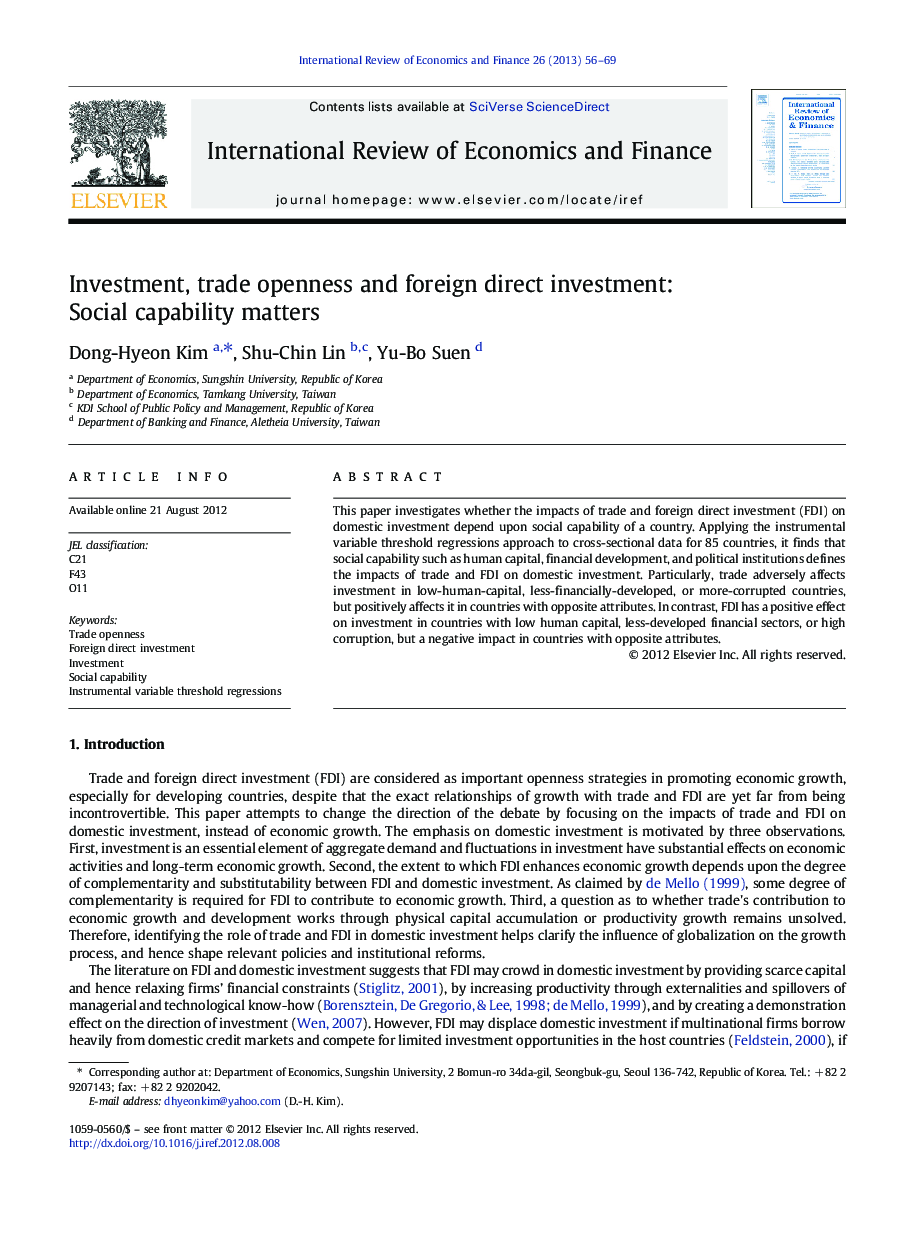| Article ID | Journal | Published Year | Pages | File Type |
|---|---|---|---|---|
| 5083756 | International Review of Economics & Finance | 2013 | 14 Pages |
Abstract
This paper investigates whether the impacts of trade and foreign direct investment (FDI) on domestic investment depend upon social capability of a country. Applying the instrumental variable threshold regressions approach to cross-sectional data for 85 countries, it finds that social capability such as human capital, financial development, and political institutions defines the impacts of trade and FDI on domestic investment. Particularly, trade adversely affects investment in low-human-capital, less-financially-developed, or more-corrupted countries, but positively affects it in countries with opposite attributes. In contrast, FDI has a positive effect on investment in countries with low human capital, less-developed financial sectors, or high corruption, but a negative impact in countries with opposite attributes.
Related Topics
Social Sciences and Humanities
Economics, Econometrics and Finance
Economics and Econometrics
Authors
Dong-Hyeon Kim, Shu-Chin Lin, Yu-Bo Suen,
